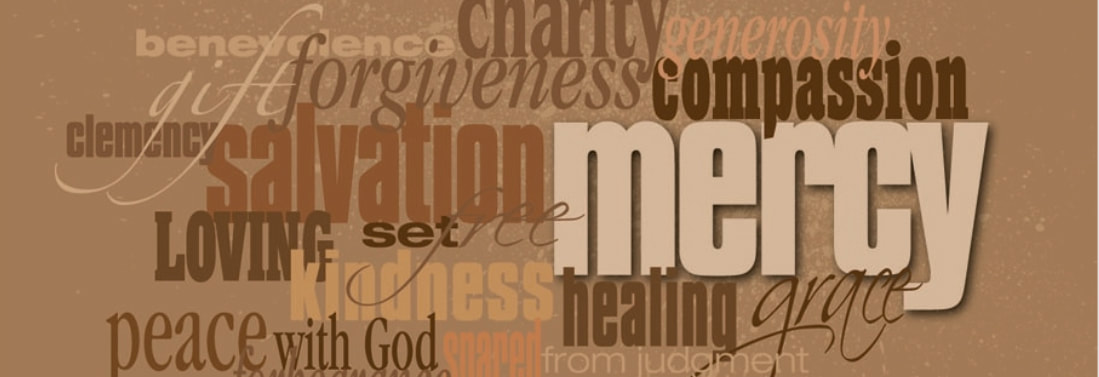MERCY MINISTRY
WELCOMEFAMILY SUPPORT GROUP Wednesday 7:00PM St. Thomas of Villanova Auditorium, Bryn Mawr. WOMENS 11TH STEP MEETING Wednesday 6:00am - If you would like to join us, please contact Jeanmarie Lorello at 610-525-4801 for Zoom meeting information. AA Meeting Saturdays 7:00am - lower level of Parish Center RESOURCES
Former NBA Player
Chris Herren Featured in New Substance Use Prevention Film Faith Recovery
Is a web resource that provides information and support to people facing substance use disorders. PA GET HELP NOW!
24/7 (Detox and Rehab) 1.800.662.4357 PARENT HELPLINE 1.855.378.4373
CLEAN AND SOBER RADIO WWDB-AM860 Fridays 3pm
LOCAL SUPPORT GROUPS
These meetings are parents supporting parents of children with drug & alcohol addictions. Sunday 12:30pm Recovery Centers of America, Devon Monday 7:00pm Center for Families, Malvern Monday 7:00pm Interchange Corp. Ctr., Plymouth Meeting Tuesday 6:30pm Mirmont, Broomall Thursday 7:00pm Exton Community Baptist Church Thursday 7:00pm Interchange Corp. Ctr., Plymouth Meeting
Family Support Groups
Crisis Intervention
Reference Numbers
Michael Lanahan
Licensed Professional Counselor Catholic Clinical Consultants 100 Levittown Parkway Levittown, PA 19054 855-518-2223/267-337-4540 C-215-266-8584 |
ABOUT USMISSION: Mercy is a ministry committed to spiritual, as well as practical, support for families suffering from the effects of addiction. We will provide awareness about the disease of addiction, both chemical and process, along with education. We will be available to pray with, listen to, and support anyone who contacts us in a safe and confidential manner. We are not professionals; we are fellow Catholics trying to live as "missionaries of mercy".
AFIRE - MONDAY EVENING PRAYERS via ZOOM
You're invited to pray vespers with us (via Zoom) Monday evenings at 6:30pm. This weekly 20-minute service includes inspiring music, images, and videos for reflection. Click here for Upcoming Events.
Catholic In Recovery
online and in-person meeting and retreats and other resources for Catholics. On July 16, the transition to dialing 988 for suicide, mental health or substance abuse crises will take place across the nation. Click here for 988 factsheetClick here for new tool to indicate your insurance / no insurance options.
The above link is a new tool now available in multiple states including PA which was recently added. It includes a brief assessment and the ability to indicate your insurance options (or no insurance), dual dx, etc., to help refine your search. Available in English and Spanish. Marijuana
17 states that have legalized recreational marijuana. Lt Gov John Fetterman, now running for US Senate, attended, along with 4,000 others, the PA Cannabis Festival in Kutztown this month. 90% of Americans agree with legalization in some form. Many will have children and grandchildren that will grow up in a legalized environment and may have kids that will be negatively impacted by substance use. It's important to get educated! Today, it is an entirely different drug than the Woodstock days! So listen to the YouTube. Check out www.learnaboutsam.org Get the book Smoke Screen: What the Marijuana Industry Doesn't Want You to Know. Check out www.momstrong.org (unmasking the marijuana charade). The Mom who started this lost her son at age 31. He wrote "marijuana killed my soul and ruined my brain" Watch Cannibis Use & Mental Health YouTube replay . 
IN THE NEWS
Please talk openly about drug abuse as many drugs are now being laced with fentanyl, a painkiller that is 50 times more potent than heroin. Just a few flecks the size of grains of salt can cause rapid death. READING AND EDUCATION
Have you lost a Brother or Sister to Addiction? Family Groups are designed to meet the needs of those with loved ones who are currently in treatment, are using alcohol and/or drugs in a problematic manner or are in recovery. Our mission is to help ourselves and in turn help others whose loved ones are struggling with addiction. The purpose of these groups is to provide family members a confidential, safe place to find support, education, encouragement and hope on their own path to Recovery for Life. Those 18 years and older are welcome. INFORMATIVE LINKS
1-- Loss After Addiction from a grief support group in Delaware County 2--Interesting article on what is known as " sobriety sampling". 3--News article related to 2 criminal justice bills signed into law in PA 4--Driven by Data - Dedicated to Recovery 5 - Drug Addiction is not a choice, it's a disease. EDUCATION ARTICLES AND POWER POINTS
Pennsylvania Recovery Organization - Achieving Community Together
(PRO-ACT) PRO-ACT Brochure Parity for Mental Health benefits. Faces & Voices of Recovery – Comprehensive Addiction Resources National Institute on Alcohol Abuse and Alcoholism (NIAAA) Older Adults and Alcohol Article from the NIAAA A Members Eye View of Alcoholics Anonymous COMMON RISK FACTORS ASSOCIATED WITH TEEN DRUG & ALCOHOL ABUSE
Several decades of research shows that some teens are more at risk for developing a substance abuse problem than other teens. Understanding risk factors is very important when a child with more risk has already experimented with substances or has a problem. Knowing the risk factors will give you a clearer picture of why certain things might have happened and how to get the right kind of treatment. Family History: Family history of drug or alcohol problems, especially when it is the parent’s history, can place a child at increased risk for developing a problem. Mental or Behavioral Disorder: If your child has a psychiatric condition like depression, anxiety or Attention Deficit Hyperactivity Disorder (ADHD), he or she is more at risk for developing a drug or alcohol problem. Trauma: Children who have a history of traumatic events (such as witnessing or experiencing a car accident; natural disaster; being a victim of physical or sexual abuse) have been shown to be more at risk for substance use problems later in life. Impulse Control Problems: Children who frequently take risks or have difficulty controlling impulses are more at risk for substance use problems. Learn More About Risk Factors: Time to act. Learn the risk factors. |






